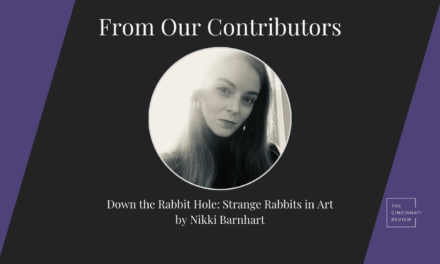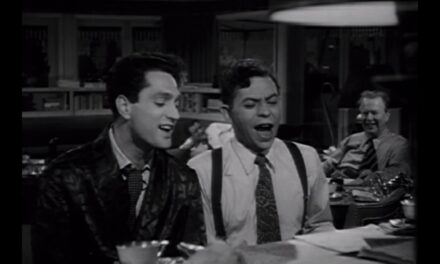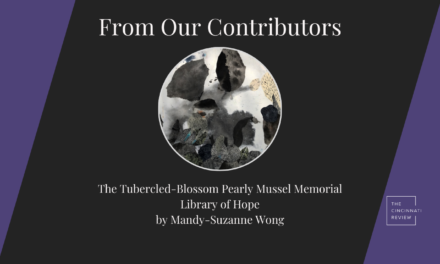Rochelle Hurt: There is something to be said for writing against or away from received traditions and natural proclivities. Often, the result is a kind of verve and vigor we may not otherwise access. Several contributors to CR 12.2 describe their process as that of writing against the grain, whether by challenging predecessors, staking out marginal territory, or disavowing process altogether. In thinking about this, I also noticed that many 12.2 contributors formed their pieces out of difficult or negative experiences—not by turning away from them in search of comfort, but by turning toward them. This is an interesting and indirect counter to the idea of writing against. Perhaps sometimes the same kind of verve attained through writing from aversion can also be attained through writing from adversity. In other words, try the darker path.
David Mohan: “Semblance” explores how a lover treats with time, and the psychological temporality of a relationship. My key trigger would have to be John Donne’s “The Sunne Rising,” one of the great poems about love and the passage of time, but it should be pointed out that I was inspired to write against that poem, and explore something similar to a counterpoint to Donne’s playful conceit. I love the idea in Donne’s poem that it might be possible, within the exalted temporality of being in love, to control time, but I was more interested in how someone in love has a more pronounced sense of how transient any form of human contact is. If the lovers in Donne’s poem are at the center of the universe—according to the poet, at least—the lovers in “Semblance” are rendered close to anonymous when viewed in the context of moment-by-moment flux and change.
Charles Rafferty on “Leisure,” “Antique,” and “Because He Had Been Crying”: I used to have an aversion to prose poems. I thought of them as mules—sterile hybrids. Now, I see the prose poem as a euglena—that cutthroat survivor with a foot in two kingdoms.
Allison Campbell on “Necessity”: I think I can safely say this is the first poem I’ve written via food poisoning. Maybe this is an argument for how much intelligence is in the gut, rather than the brain. I don’t know. But after a turkey sandwich from a questionable, smoothie-making-health-food-like joint, I was up all night and in incredible pain. To pass the dark hours and try to ease the discomfort, I listened to a meditation podcast. The woman’s almost unnervingly calm voice kept calling for space, to create space. And I noticed that when I could breathe around the areas of my body that felt distressed the space that breathing created opened room for some relaxation and relief. I started thinking about how the heart needed similar space, similar opening. Now, I say I started thinking about the heart—but in truth, I didn’t think, I just started writing the poem. In place of the meditation, I used the lines of the poem I was writing to pass the night. I repeated them and added to them and wrote my first draft of the poem the next day. Life’s gifts come in strange packages, right?
Dana Koster on “Endeavour”: There is ineloquence in grief, in that heart-ripped-out feeling that happens when you lose someone. You feel gutted. But you can’t write that your heart feels ripped out or that you feel gutted because those descriptions are cliché. So at a time when it’s difficult to come up with the name of a food that sounds appetizing, you’re left searching for new words to describe the oldest form of sadness. “Endeavour” came out of such a time. In the weeks after my friend Rick T. Jones died suddenly in 2014, I came across a photo of the Space Shuttle Endeavour before it was retired: its stark silhouette set against the huge and vibrant ombré of Earth’s atmosphere. It struck me how profoundly alone it was and it reminded me of Rick—both his wanderlust and the lonely manner of his death. In its way, the poem is an elegy for them both.
Colin Fleming on “Old Pyke”: I see a lot of accounts of how people came to write something where their grandfather had a talisman that was passed down with an accompanying tale through generations, or they labored for years with this idea they fictionalized from a newspaper story. I don’t really work that way. Sometimes stories come to me while I’m asleep, other times they just come to me, sometimes I write them in my head in full on my ten mile walks and I type them out later, and other times I just sit at the computer and say, “okay, time to go, let’s do a story, who do you want in it, what do you want to happen.” And I make it up. For me, it’s just about being myself. I suck at a lot of things—a huge, huge, embarrassing amount of things—but writing is not hard for me. By being myself I don’t mean looking around my life at things that have happened to me, but just doing what I do and knowing that doing that is going to carry the day, find the end point I want. I’m a storyteller. I think we fetishize process nowadays, because many writers like to talk more about writing than actually doing the writing. They sometimes live in fear of trying to make the white page black. So with “Old Pyke,” I’d never been to any of those places, I didn’t base the characters on anyone, and I did it in a couple hours. I had other things to write. You’re not supposed to say that anymore, right? But that’s also how it always was for the people whose work I esteem, across a range of mediums. When the imagination is in place, plus the understanding of what I’ll call human truths, and you can just be yourself, it’s about keeping the line moving and doing the next one. Because if that’s really who you are, they kind of write themselves anyway.












